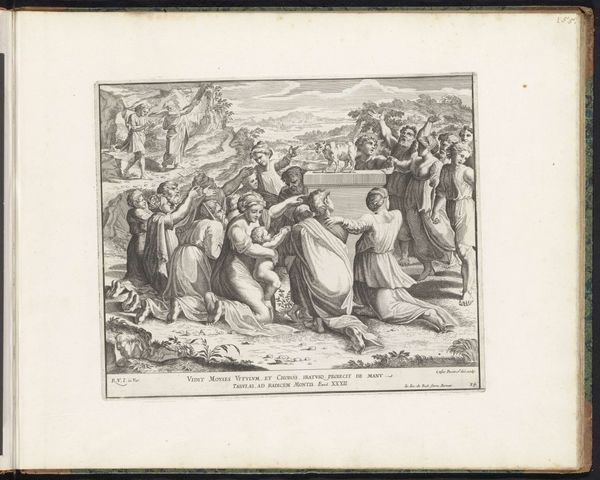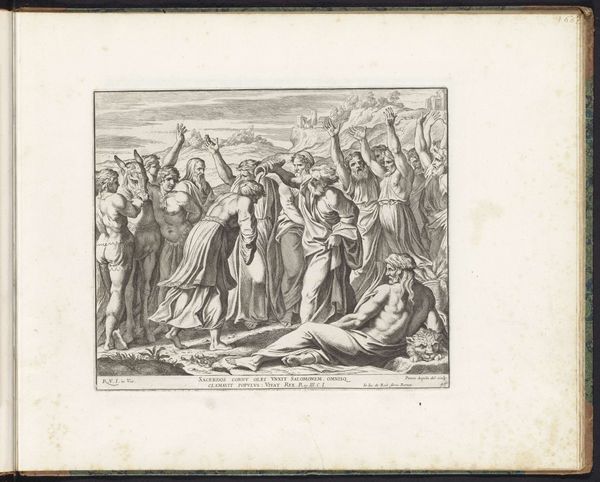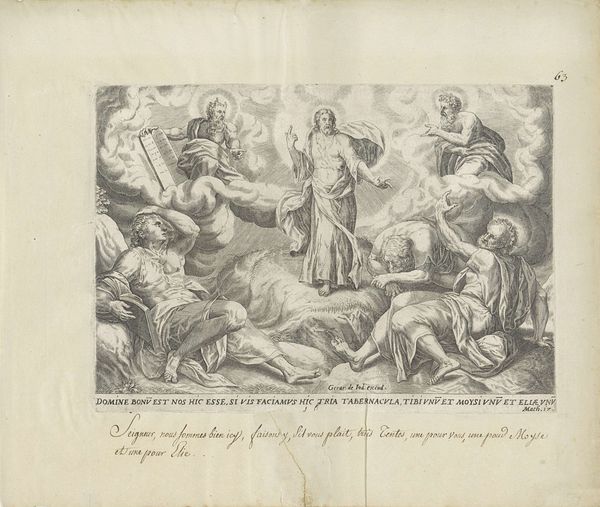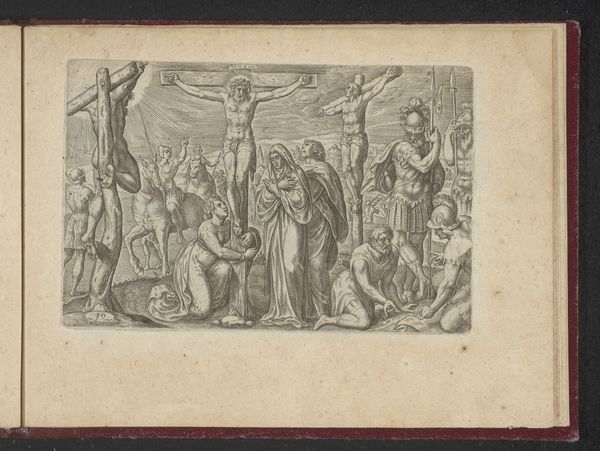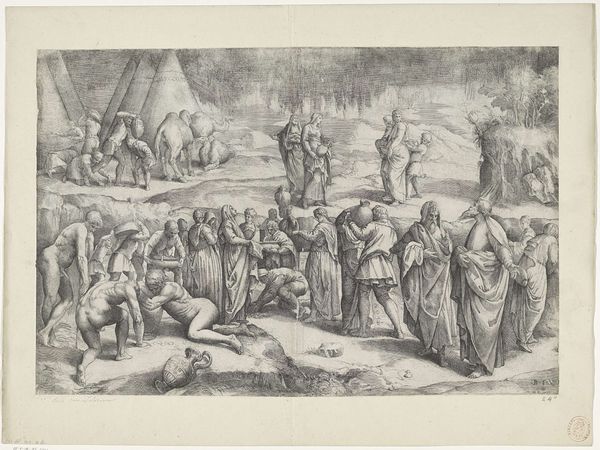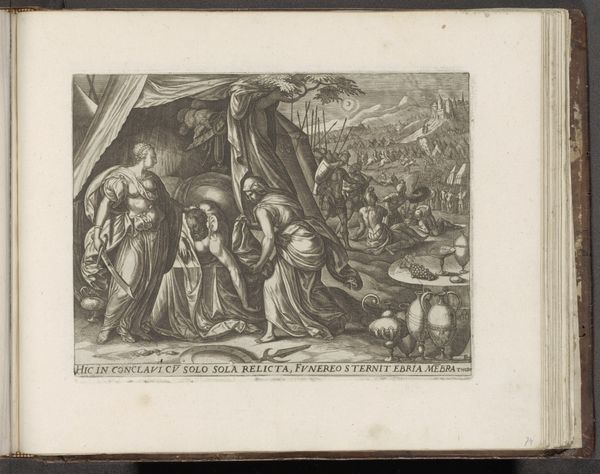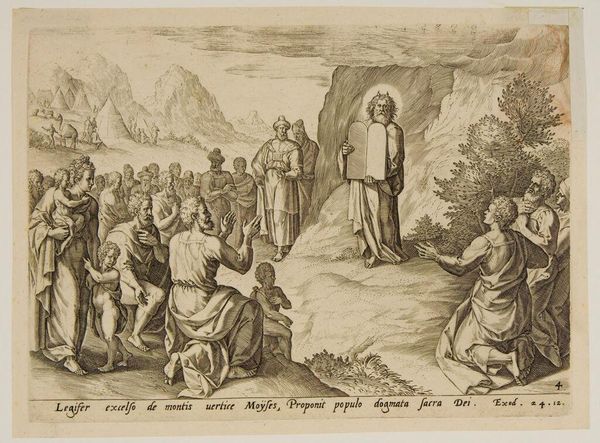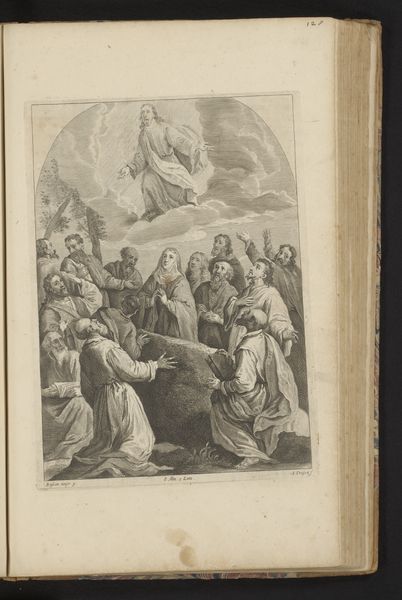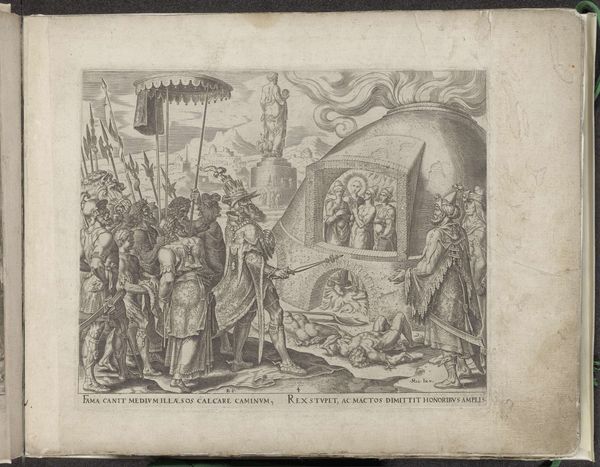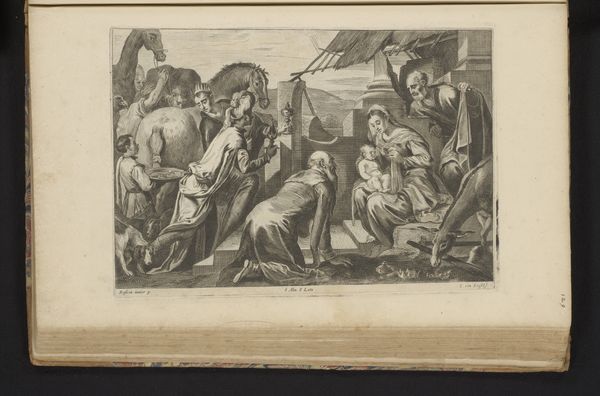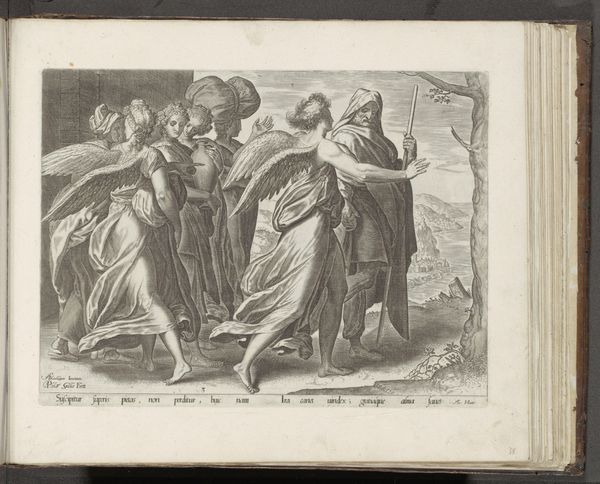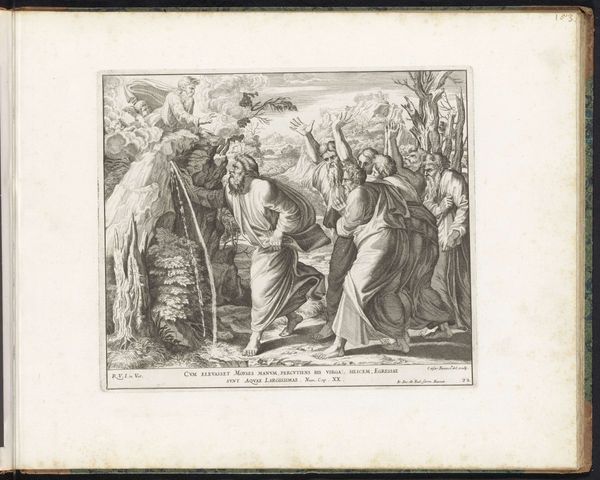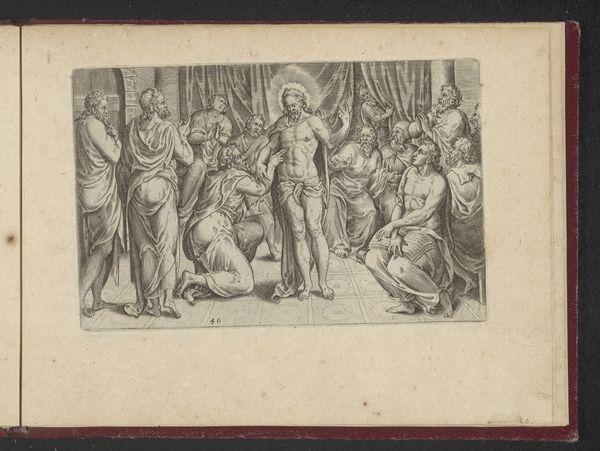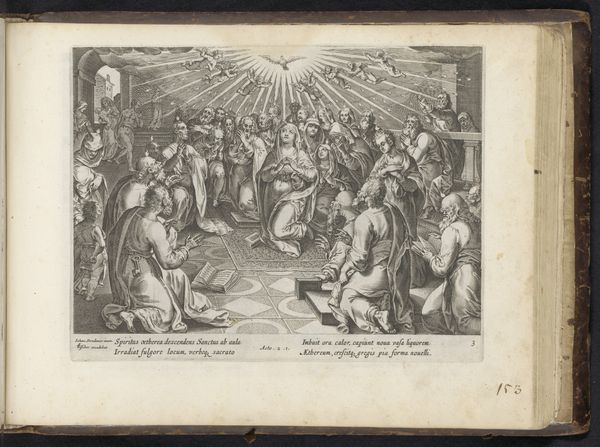
drawing, print, ink, engraving
#
drawing
#
narrative-art
#
pen drawing
#
mechanical pen drawing
# print
#
pen illustration
#
pen sketch
#
sketch book
#
11_renaissance
#
personal sketchbook
#
ink
#
pen-ink sketch
#
pen work
#
sketchbook drawing
#
history-painting
#
sketchbook art
#
engraving
Dimensions: height 191 mm, width 265 mm
Copyright: Rijks Museum: Open Domain
Curator: Immediately, I’m struck by the raw, almost urgent quality of this image. There’s a powerful dynamism created by the densely packed figures. What do you see first? Editor: The figure of Moses bathed in divine light is so central. Let's consider "Moses with the Tablets of the Law" made in 1585 by Johann Sadeler I. The engraving on paper really lends itself to conveying symbolic ideas here, doesn't it? Curator: Absolutely, the light radiating from Moses feels like it signifies more than just the divine. It speaks to the transformative power inherent in divine law and the responsibility to adhere to the tablets of law that carry cultural weight to the represented crowds. It is such an ancient symbol in culture. Editor: Precisely. I am intrigued by the postures. Many have heads raised, others are prostrate in submission or reverence. It strikes me as a powerful comment on hierarchy and power dynamics embedded in religious structures, a system of control but one born of faith, creating an enduring influence across history and culture. Curator: Indeed. But look closer. There’s a deep sense of hope within these subjects as a direct effect from God. Consider how religious imagery often serves as a crucial tool for community building, conveying continuity and offering stability and a moral direction for society. Editor: While hope is an interesting frame, it's impossible to ignore that even within a narrative of divine blessing, systems of exclusion, judgement and even retribution can coexist as part of an authoritarian regime of morals. This can easily oppress individuals and suppress freedom of thought and dissent, as happens far too often in patriarchal interpretations of religious belief. Curator: I see what you mean; this image could carry a complex set of associations. Yet it endures, speaking across time. Editor: Which suggests there's always more to uncover, dialogues between the personal, social and historical interpretations.
Comments
No comments
Be the first to comment and join the conversation on the ultimate creative platform.
